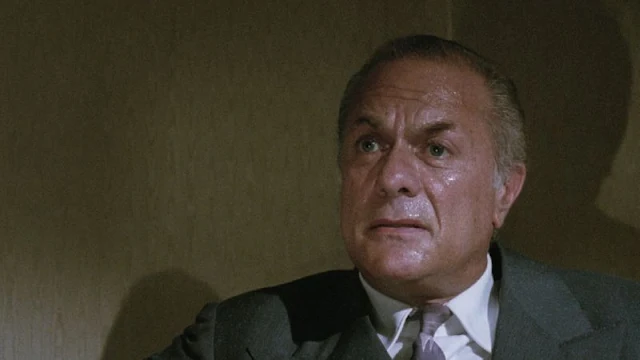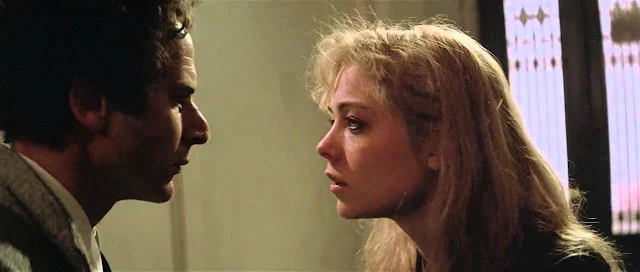Track 29 (Nicolas Roeg, 1988)
Cast: Theresa Russell, Gary Oldman, Christopher Lloyd, Colleen Camp, Sandra Bernhard, Seymour Cassel, Leon Rippy.
Screenplay: Dennis Potter.
Cinematography: Alex Thomson.
Production design: David Brockhurst, Curtis A. Schnell.
Film editing: Tony Lawson.
Music: Stanley Myers.
With directors like Luis Buñuel and David Lynch, whose films regularly stray along the boundaries between logic and the irrational, between the waking world and dreams, between sanity and madness, you can always sense a central consciousness, a coherent vision, holding the film together. This isn't the case with Nicolas Roeg's
Track 29, which falls apart as it drifts into weirdness for weirdness's sake. It centers on Linda, a neglected housewife, whose physician husband, Henry, spends most of his free time in the attic playing with his model trains, and at work is having an affair with his nurse, who spanks him while wearing rubber gloves. The doctor and nurse are played by one of the odder couples ever to be seen in a movie, Christopher Lloyd and Sandra Bernhard. One day, when Linda (Theresa Russell) is having lunch with her friend Arlanda (Colleen Camp), they're joined by a young man named Martin (Gary Oldman), whom we see at the start of the film hitchhiking along a country road and later being picked up by a trucker (Leon Rippy). Martin creepily admires the trucker's "Mom" tattoo, which sets us up for the even creepier assertion that he will make to Linda that he's really the son she gave up for adoption at birth. That Oldman and Russell are almost the same age should clue you in to the fact that nothing is going to make conventional sense in
Track 29. Martin arouses more than maternal passion in Linda, but he may not even exist: Although Arlanda sees him in the cafe where he makes his acquaintance with Linda, in a later restaurant scene in which Martin plays on Linda's erotic obsession, we cut from the table where they're sitting to behind the bar and share the point of view of a waiter and bartender who see her sitting alone. Oh, there's much more, including a scene in which Henry addresses the attendees at a model train collectors' convention and stirs them to a frenzy with his speech. But you get the point:
Track 29 is mostly an elaborate psychosexual fantasy, but it lacks a central vision to hold it together or carry it to any kind of satisfactory conclusion. It's never daring enough to explore sexual frustration and obsession in the many imaginative ways Buñuel does in
Belle de Jour (1967). It could pass as satire if there were any larger point to its fleeting moments of insight or surprise, the way Lynch's
Blue Velvet, made two years earlier, uncovered the seamier side of Reagan-era complacency. As it is, it's just, well, weird.




































